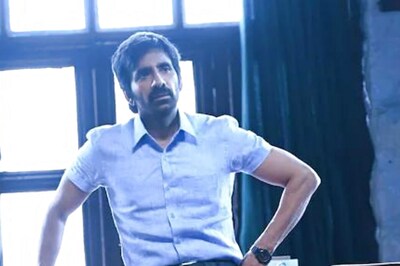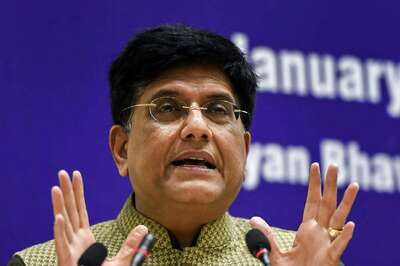
views
Beirut: Top foreign diplomats on Wednesday planned the dispatch of a 15,000-strong International force to enforce a cease-fire in southern Lebanon.
Meanwhile, the Government was divided over whether Hezbollah should lay down its arms or even withdraw them from the border with Israel.
Hezbollah, on the other hand, said it would help tens of thousands of people reconstruct homes that were destroyed in a month of war with Israel, a move likely to boost its standing among Shiite Muslims, who make up about 35 per cent of Lebanon's four million people.
The mayor of a southern town said 32 more bodies were pulled from rubble, as rescue workers drove into areas that were previously inaccessible because of the heavy fighting.
Visiting Beirut on Wednesday, French Foreign Minister Philippe Douste-Blazy said France would commit troops to the United Nations (UN) peacekeeping force that will deploy in south Lebanon, but did not say how many soldiers.
The international force, which will be bolstered by 15,000 troops from Lebanon, will police the cease-fire between Israel and Hezbollah fighters that ended 34 days of fighting on Monday.
The diplomatic maneuvers came as the Israeli army withdrew more troops from southern Lebanon while Lebanese troops prepared to move across the Litani River on Thursday to take control of the war-ravaged region from Hezbollah guerrillas.
The Lebanese army will begin moving Thursday into a "significant part" of south Lebanon left behind by Israeli troops, UN peacekeeping official Richard Morczynski said.
Small military delegations from Israel and Lebanon agreed to details of troop movements at a meeting Wednesday with the United Nations Interim Force in Lebanon (UNIFIL) at the border crossing point at Ras Naquora.
The 2,000-strong UNIFIL has been in southern Lebanon for more than two decades.
Douste-Blazy urged Israel to lift its blockade of Lebanon, saying it was unnecessary because the UN-imposed cease-fire was holding.
PAGE_BREAK
"The blockade imposed on the airport and Lebanese ports should be lifted. We ask Israeli authorities to lift the land and sea siege on Lebanon. We ask the Lebanese Government to strengthen monitoring of points of entry to insure Hezbollah weapons are banned,” Douste-Blazy said.
The blockade was instituted shortly after fighting began July 12, when Hezbollah staged a cross-border raid and captured two Israeli soldiers.
Israel bombed the Beirut international airport, blocked seaports and began destroying road links to Syria.
Israeli Foreign Ministry spokesman Mark Regev said the blockade is still necessary until the peacekeeping force is in place to prevent the Islamic militant group from rearming.
"Israel cannot allow a situation in which Hezbollah could be strategically rearmed," he said, adding that "Israel will do everything we can to facilitate the flow of humanitarian aid to the people of Lebanon" in the interim.
The UN hopes 3,500 international troops can reinforce a 2,000-strong UN contingent already on the ground within 10 to 15 days to help consolidate the cease-fire and create conditions for Israeli forces to head home, Assistant UN Secretary-General for Peacekeeping Hedi Annabi said.
Those plans, however, depend on the full compliance of the Lebanese Government.
The Cabinet had been unable to meet on the issue since the cease-fire because of divisions over what should be done about Hezbollah's arms in the south, but finally met late Wednesday.
A legislator who held talks with Saniora on Wednesday, Ali Hassan Khalil, on behalf of the Hezbollah, said "everyone was keen on having consensus."
The arrangement taking shape among Lebanese politicians, military officials and Hezbollah would call for guerrillas to not carry weapons or use their heavily fortified bunkers to fire rockets.
There would be no requirement to move weapons north of the Litani, for the time being.
Israel's military chief said Wednesday that Israeli soldiers would remain in southern Lebanon for months, if necessary, until replaced by UN and Lebanese army soldiers, Israel Radio reported.
Lieutenant General Dan Halutz spoke in response to an intelligence assessment that it could take months for the UN-Lebanese force to deploy, the radio station reported.
On Tuesday, Halutz had predicted Israel would withdraw its forces from Lebanon within seven to 10 days.




















Comments
0 comment